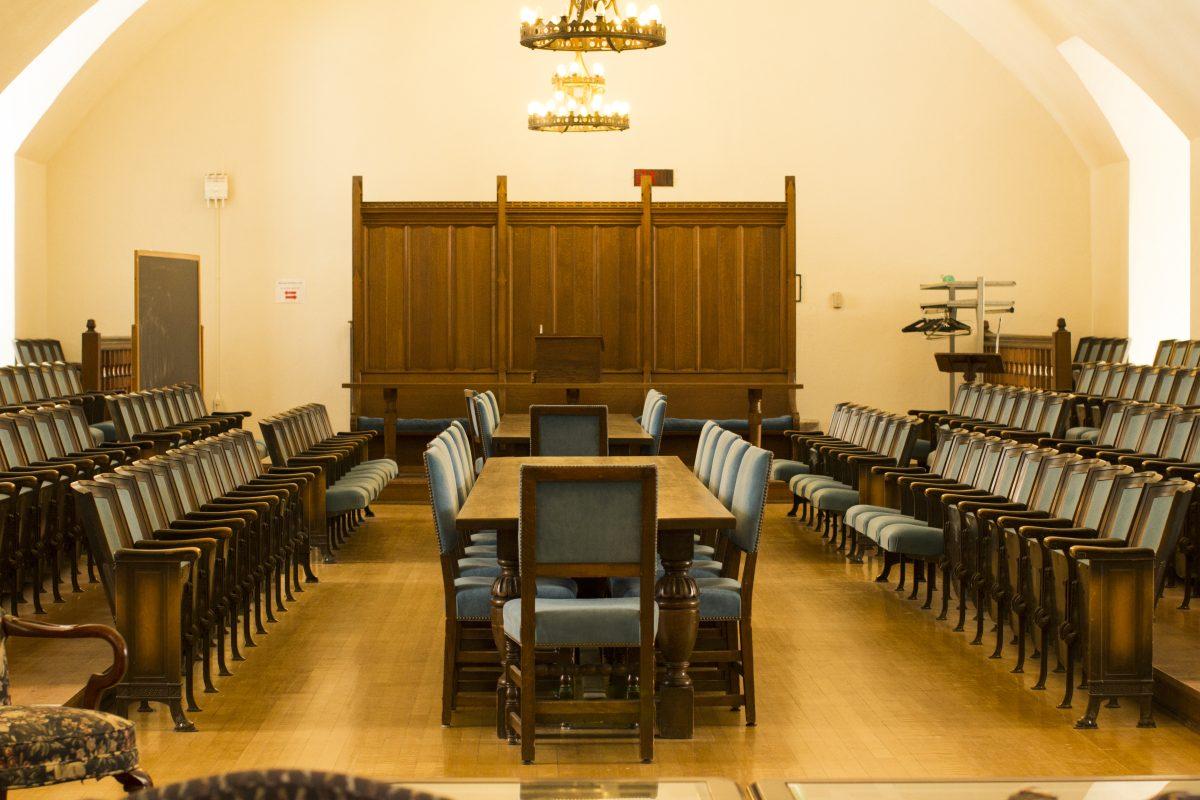This week, College Government invited students to join ad-hoc committees in the first step toward implementing the eight winning initiatives from Ideafest in December. The ad-hoc committees, which are formed for specific tasks and dissolved directly after they are completed, provide a platform for students to take interest and commit to issues they care about on campus. Receiving funding will depend on the committees’ ability to make each initiative a reality.
Each ad-hoc committee will work on one initiative and, when the idea is thoroughly planned and prepared for, will receive funding from the $11,000 gifted by President Bottomly to College Government toward a ballot initiative that used to fund the Student Leadership Stipend.
Last year, the College Government (CG) took full responsibility of the initiatives from Ideafest. This year, CG decided to give the decision-making power to a variety of students who feel passionately about specific issues and may be less preoccupied with other projects around campus.
Adeline Lee ’16, CG President, spoke on the new Ideafest implementation process. This year, she will be overseeing much of the process. “I think oftentimes when people have these kinds of big ideas, they tend to get bogged down in details,” said Lee. “What we’re going to be focusing on is how we’re going to translate really large hopes for what the campus will look like after these projects are done into things that can be accomplished within a semester.”
The “Give a Token, Take a Token” initiative, for example, has caught the eye of several students already. Tarini Miglani ’19 attended the first ad-hoc committee information meeting mostly because she was interested in helping with this initiative.
“I’m not even in Senate, but I saw a lot of these ideas and the ‘Give a Token, Take a Token,’ I really want to help with that.”
Grace Bernard ’18, the Executive Senator from Cazenove Hall, helped brainstorm for the initiative at Ideafest.
“I think it’ll be an interesting social experiment,” Bernard said. “It’s a good chance to foster community and encourage generosity.”
Despite the enormity of the project, she wasn’t worried about the possible negative outcomes of the initiative.
“If the jars empty quickly, that signifies a problem with the cost of the college’s transportation.”
With the enthusiasm expressed for the project already, the initiative could easily be completed by the end of February. The initiative’s success is less certain. Its goal of providing tokens for those who may have difficulty paying for them depends on the generosity and honesty of others.
“That one would be a good Honor Code experiment,” Lee said of the “Token” initiative.
Additionally, there are several initiatives related to open spaces on campus, including an outside seating area in the Academic Quad, one in the Science Center and one in the Lulu Chow Wang Campus Center. These are slightly more ambitious projects with more supplies required and a more noticeable impact on the appearance of the campus than other initiatives.
The administration, however, will mostly be uninvolved with implementation, though they will be available to help with any administrative issues.
“I am sure that each committee will consult and collaborate with the appropriate staff or administrators or faculty as they consider implementation,” said Interim Dean of Students Adele Wolfson.
Collaboration with the faculty began before ad-hoc committees were even formed. Catherine Summa, the director of the Science Center, attended a preliminary meeting on the “Science Center Sanctuary” initiative, where she went so far as to commit some funding for the project. That was the extent of their collaboration up to this point, however.
“I have no idea whether it was approved or if there was any funding allocated,” Summa said. “I did tell them that if approved, I would be willing to help support it, but we did not discuss any dollar amounts.”
JoNan Bilodeau, Science Center Office Manager expressed minor frustration at the lack of communications they have received in the beginning stages of the implementation process.
“We haven’t received any emails,” she said, regarding plans for the ‘Science Center Sanctuary’ and how the students will turn their idea into a real space.
She was not yet aware of which initiatives were chosen, she said, yet the process is just beginning.
“I’m certain that the students will reach out to us soon so that we can work together on trying to move the project forward,” Bilodeau said.
Though there will be some input from the administration, as Dean Wolfson alluded to, Ideafest is overall student run with College Government and the newly-formed ad-hoc committees bearing the majority of the responsibility during the implementation process.
“A huge theme behind an event like Ideafest is to encourage people to think really, really big about ways that they can affect campus culture in a really positive way,” Lee said.






